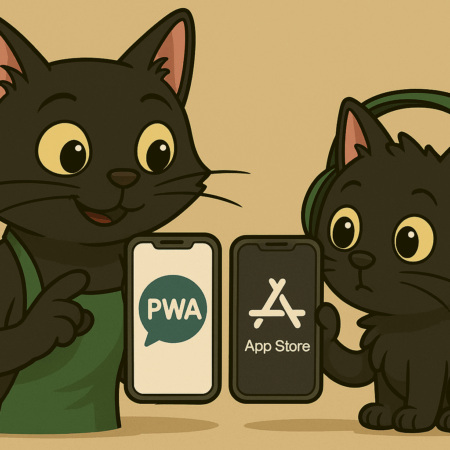Progressive Web Apps, or PWAs, are being increasingly recognised as the future of mobile experiences. They combine the accessibility of the web with the functionality of native apps, creating fast, reliable, and engaging platforms that work across devices without requiring app store downloads.
What Is a Progressive Web App?
In simple terms, a PWA is a website that behaves like a mobile app. It runs in a browser but offers features normally reserved for native apps, such as push notifications, offline use, and smooth navigation. Unlike traditional apps, there is no need to download a PWA from an app store—it can be added directly to the home screen from the web.
According to a report from Brainhub, “PWAs provide offline functionality and push notifications while being accessible instantly through the web, removing the barriers of app stores.”
Benefits Over Traditional Apps
One Codebase for All Devices
A single PWA can run across Android, iOS, and desktop without the need for separate development teams. A Medium article noted, “The biggest advantage of PWAs is a single codebase for all platforms, which saves both time and money.”
Offline Use & Improved Performance
PWAs cache content and continue to function without an internet connection. They load quickly and run smoothly, offering a more reliable experience than many mobile websites.
No App Store Barriers
Users can access a PWA with a link and add it to their home screen instantly. This bypasses lengthy approval processes and restrictions from app stores.
App-Like Features
Push notifications, geolocation, home screen icons, and full-screen functionality make PWAs behave much like native apps, but with added flexibility.
SEO & Shareability
Because they are part of the web, PWAs can be indexed by search engines and shared easily via a simple link—an advantage native apps do not offer.
Cost-Effective and Proven Results
PWAs are lighter, faster to update, and cheaper to maintain. Companies that have implemented them, including major retailers and international brands, have reported significant increases in engagement and sales.
Why Uptake Has Been Slow
Despite these advantages, PWAs have not yet fully replaced native apps.
- Device Capabilities: Apps that require advanced use of device hardware, such as augmented reality or high-performance gaming, still rely on native app technology.
- Performance Differences: Some studies show native apps can still be more efficient with battery and memory usage, though PWAs are closing the gap.
- App Store Ecosystem: The app store model is firmly entrenched, and both users and developers remain attached to it.
As one developer observed, “With browsers becoming more powerful and app stores more restrictive, PWAs are only becoming more attractive.”
Why Adoption Should Accelerate
For e-commerce, media platforms, software-as-a-service, and internal company tools, PWAs offer a powerful combination of performance and accessibility. They update instantly, function reliably offline, and provide businesses with cost-effective ways to reach a broader audience.
According to Brainhub, “PWAs are not a replacement for every app, but for most business and consumer uses they offer a smarter, leaner alternative.”
Final Thoughts
Progressive Web Apps are not intended to eliminate native apps entirely, but they represent a forward-looking choice for businesses wanting to strengthen their digital presence. Their accessibility, performance, and cost-effectiveness make them a compelling solution in today’s mobile-first world.












